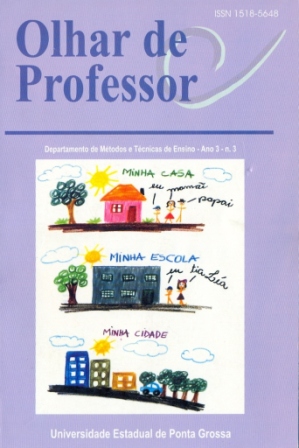Buscando Caminhos - a integração do Ser ao Saber
Main Article Content
Abstract
Percebe-se que a falta do hábito de ler tem contribuído para a produção de um discurso pobre, truncado e restrito. Neste artigo apresento minha busca de caminhos para se chegar à construção da contrapalavra através da leitura e sua exteriorização oral e/ou escrita. Dessa forma a leitura deverá ser trabalhada como fonte e instrumento criador de estruturas e inteligências que permitam o aluno, através do processo metsfórico, construir, reconstruir e ampliar conhecimentos, criando competências e tornando-se sujeito do conhecimento e da história. Além disso defende-se que a prática da conscientização de valores humanos universais, sob uma perspectiva filosófica, religiosa e cultural, através de texto-pretexto, criam e/ou ampliam o espírito de cooperação, de criatividade, de respeito às diferenças, de reverência e de amor pelos seres humanos, pois tais valores são fundamentais ao bom andamento do cotidiano escolar. Tal abordagem implica na certeza de que sem o resgate humano e o uso de metodologias alternativas PE impossível trabalhar a formação holística do ser.
Downloads
Article Details
Authors who publish in this journal agree with the following terms:
a) Authors keep the copyrights and concede the right of its first publication to the magazine. The work piece must be simultaneously licensed on the Creative Commons Attribution License which allows the paper sharing, and preserves both the author identity and the right of first publication to this magazine.
b) Authors are authorized to assume additional contracts separately, to not-exclusively distribution of the paper version published in this magazine (e.g.: publish in institutional repository or as a book chapter), with the author identity recognition and its first publication in this magazine.
c) Authors are permitted and stimulated to publish and distribute their papers online (e.g.: in institutional repository or on their personal webpage), considering it can generate productive alterations, as well as increase the impact and the quotations of the published paper.
d) This journal provides public access to all its content, as this allows a greater visibility and reach of published articles and reviews. For more information on this approach, visit the Public Knowledge Project, a project that developed this system to improve the academic and public quality of the research, distributing OJS as well as other software to support the publication system of public access to academic sources.
e) The names and e-mail addresses on this site will be used exclusively for the purposes of the journal and are not available for other purposes.

This work is licensed under a Creative Commons Attribution 4.0 International License.

